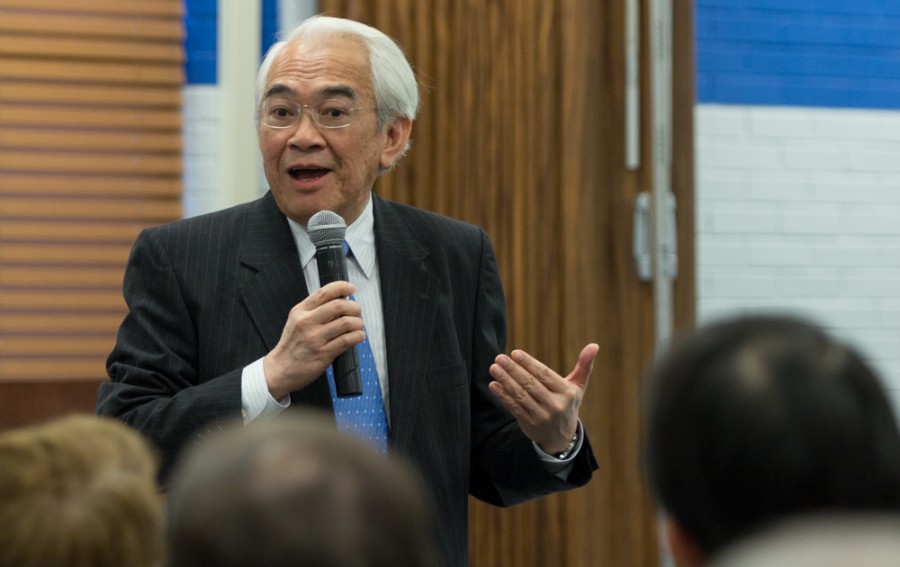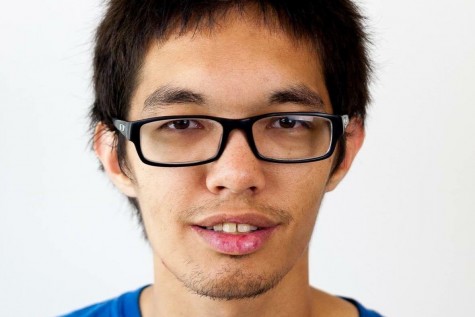Hong Kong expert speaks about recent protests
Wing-yin Yu, a former gubernatorial candidate and physics professor, speaks to a group of faculty, staff and students Thursday in the Charleston/Mattoon Room in the Martin Luther King Jr. University Union.
October 9, 2014
Unusual. Remarkable. Irrational.
This is how Wing-yin Yu described the current situation of pro-democratic protests in Hong Kong that started on Sept. 28.
Yu, a former gubernatorial candidate and physics professor, spoke to a group of professors and students Thursday to recap the situation in Hong Kong.
Yu started by recapping what he called “contradictions” within the culture of Hong Kong.
Contradictions such as a lack of economic diversity, a very low percentage of GDP spent on education, and only 0.8 percent spent on research and design projects.
“We [Hong Kong] have the money to solve these contradictions, but the government doesn’t pay for it,” Yu said.
Yu also talked about his thoughts about the Hong Kong protests, standing by his description of them as irrational.
Yu described how many Americans do not understand the culture in Hong Kong and its relationship to China.
To Yu, Hong Kong is similar to an American city—that is, it reports to the authority above it, in this case, the central government of China.
“Hong Kong is not a sovereign state,” Yu said. “It is actually like a city, just a bit bigger than Charleston. It is the law that whoever got elected would be selected by the central government.”
The government of China currently selects a short list of candidates, and then the voters in Hong Kong choose who they want to be their “chief executive”, sometimes translated as “governor”.
“The protesters just don’t like the short list, but what they don’t understand is that it is provided for in the Basic Law of Hong Kong that there would be a nomination committee who would nominate the candidates,” he said.
Yu went on to describe how he feels the citizens in Hong Kong have “not been used to” political discussions because they are not encouraged in the society.
He also does not think all of them understand how the processes work for election of the chief executive.
“The protesters say, ‘Oh well, we don’t like this short listing [of candidates]; we want our candidate,’” Yu said. “But the protestors don’t understand that this is provided under the law and that we need this safeguard so that there will not be foreign governments meddling in Hong Kong affairs.”
Yu said the fact that even high school students were out on the street shows how this is a “manifestation” of the contradictions within the society.
“What they are asking for is actually not a good thing, and they are asking for something which is not possible,” Yu said. “The Hong Kong government has no authority [to change the rule]. That is why I call the whole thing so irrational.”
Yu concluded the talk by taking questions from the audience on a range of subjects, from his personal life studying physics in America and doing research around the world, to his decision to run for chief executive in the 2012 election.
Ping Chen, a former professor within the political science department and current director of Eastern’s Public Policy Institute, arranged Yu’s visit as a part of his drive to bring diverse speakers to Eastern’s campus every semester.
Jack Cruikshank can be reached at 581-2812 or [email protected].




















































